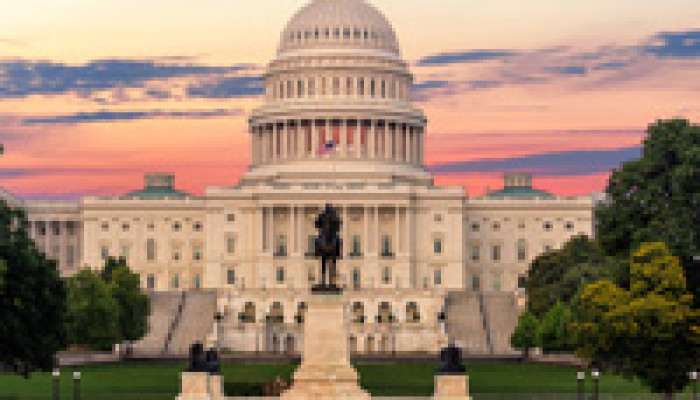Congress Passes Continuing Resolution, Averting Shutdown and Funding Key Healthcare Provisions

The continuing resolution (CR) passed last week by Congress to avoid a government shutdown included a number of hospital priorities advocated for by The Center for Health Affairs and its partners. Passed just hours before the midnight deadline, the CR provides continued funding through the end of the federal fiscal year on Sept. 30, 2025, for healthcare initiatives, national defense, and other government services.
The Full-year Continuing Appropriations and Extensions Act of 2025 (H.R. 1968), signed by President Trump on March 15, included the following key issues for hospitals.
- Medicaid disproportionate share hospital relief:
The bill eliminates Medicaid Disproportionate Share Hospital cuts through Sept. 30 but adds another year of cuts for fiscal year 2028.
- Medicare rural extenders:
The bill extends the enhanced-low-volume adjustment through Sept. 30 and the Medicare-dependent hospital program through Oct. 1.
- Medicare telehealth and hospital-at-home extensions:
The bill extends key telehealth waivers and the hospital-at-home program through Sept. 30. This includes the Acute Hospital Care At Home program which allows approved Medicare-certified facilities to provide inpatient level care in patients’ homes.
- Public health extenders:
The bill includes an extension for Community Health Centers, the National Health Service Corps, and Teaching Health Centers Graduate Medical Education Program through Sept. 30.
- Geographic floor index:
The bill extends the 1.0 work Geographic Practice Cost Index floor used in the calculation of payments under the Medicare physician fee schedule through Sept. 30.
- Medicare rural ambulance: The bill extends add-on payments for ambulance services through Oct. 1. These add-on payments support rural, “super-rural” and urban ambulance services.
The CR also extends the mandatory 2% Medicare payment reductions for two months to allow for continued work on budget reconciliation and adjusts funding in the Medicare Improvement Fund from $1.251 billion to $1.804 billion.
While H.R. 1968 continues funding for many healthcare programs and initiatives, it does not include any financial relief from Medicare Physician Fee Schedule cuts that were issued in November 2024 or an extension of incentive payments for participation in Advanced Alternative Payment Models.
Also important to hospitals, the bill did not include any site-neutral payment cuts to hospitals, or cuts to Medicaid, however the latter remains an active conversation as Congress prepares the budget reconciliation package, which they will turn their attention to upon their return from recess on March 24. The budget reconciliation bill will be aimed at extending President Trump’s tax cuts and advancing other key policy priorities. This reconciliation process only requires passage by a simple majority, which will allow the House and Senate to pass legislation if all Republicans vote in favor.
To offset the $2 trillion cost of the package, Congress must identify substantial spending cuts, including $880 billion under the jurisdiction of the House Energy and Commerce Committee, which is one of the key committees of jurisdiction on health issues. While the President and Republicans have assured Americans that Medicaid beneficiaries will not be impacted, concerns remain about potential changes to Medicaid eligibility, work requirements and funding limits.
You may access a section-by-section summary of the continuing resolution here. The Center’s statements of support for the critical extenders included in the resolution are available here.

